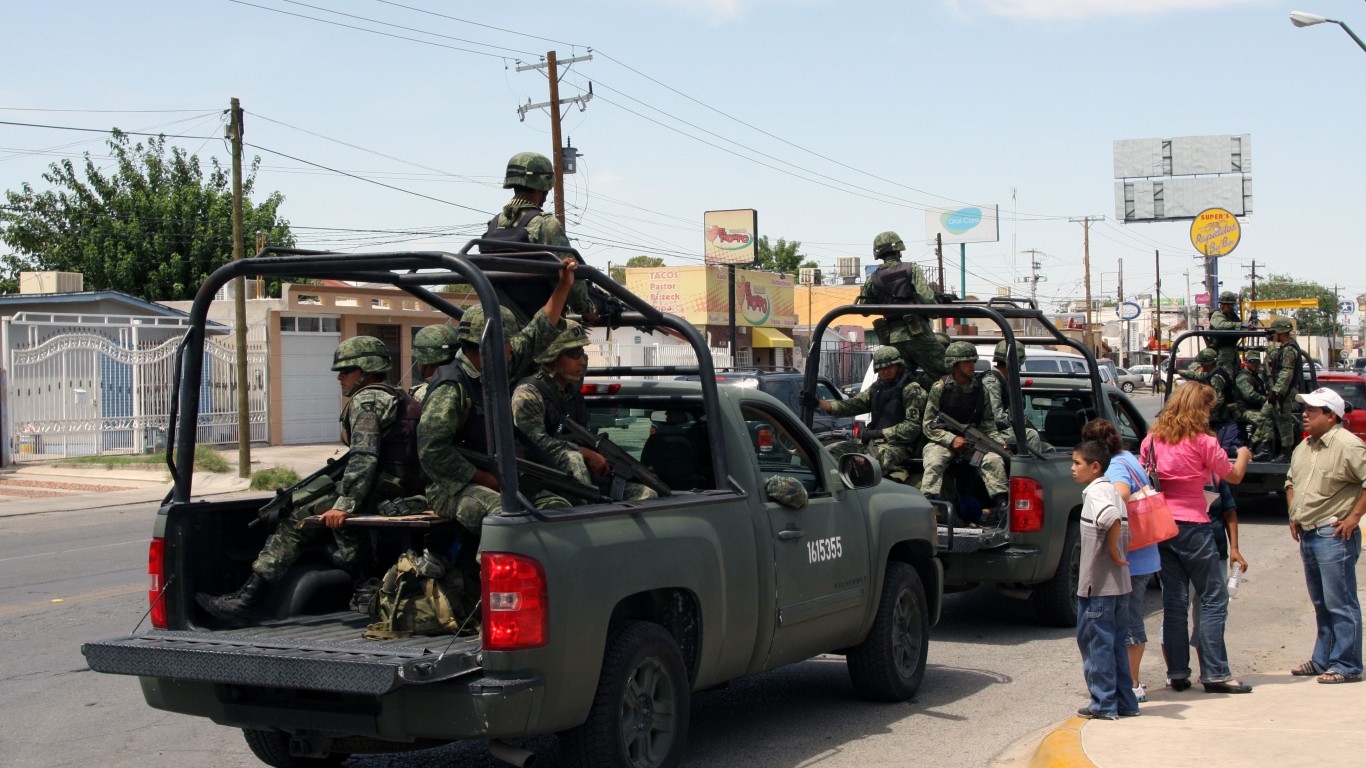
The war in Ukraine has been headlining the news as the world considers the consequences of Russia’s unprovoked invasion of the country. Far fewer armed conflicts and wars, however, are conducted at a scale that captures the world’s attention. Not many, for example, seem to be aware of the Anglophone crisis in Cameroon that’s killed thousands and displaced hundreds of thousands of people.
There are currently about a dozen major global conflicts that have risen to the level of mayhem and violence to make them regularly front page news. Some of these are recent extensions of previous wars, like the one the U.S. fought in Afghanistan for 20 years before withdrawing in August 2021, leaving behind a country facing continuing violence and humanitarian crisis.
Other conflicts have been going on for decades, the oldest being the Israeli-Palestinian conflict, where periods of violence can be followed by relative calm, as the conflict remains unresolved.
One major conflict, the civil war in South Sudan, ended in a peace deal struck in 2020 after hundreds of thousands of people died and millions were displaced. But ethnic tensions, chronic insecurity, and worsening humanitarian crises in the country persist and could tip the world’s newest country back into a state of civil war. (Also read: these are the rifles world war ii was fought with.)
To determine which countries are currently at war, 24/7 Wall St. reviewed Global Conflict Tracker, a tool created by the Center for Preventative Action, a global conflict policy think tank. Out of the conflicts the tracker lists, we only included those that are active wars. To be considered active, the conflict needs to have had recent active fighting between distinct organized factions, independently verified using news sources. The wars on this list include insurgencies within countries, political instability and civil wars, and wars between neighboring countries. The conflicts are listed according to when they began.
Out of 13 major global conflicts, the newest ones are the Myanmar civil war, triggered shortly after a military coup in February 2021, and the war in Ukraine that started with Russia’s full-scale invasion in February 2022. Seven of these conflicts are in Asia, including sectarian violence in Iraq following the pullout of the U.S. in December 2017, and Syria’s complicated civil war. Five of these conflicts are on the African continent. (Also see, 40 countries spending the most on war.)
Here are the major wars happening around the world.
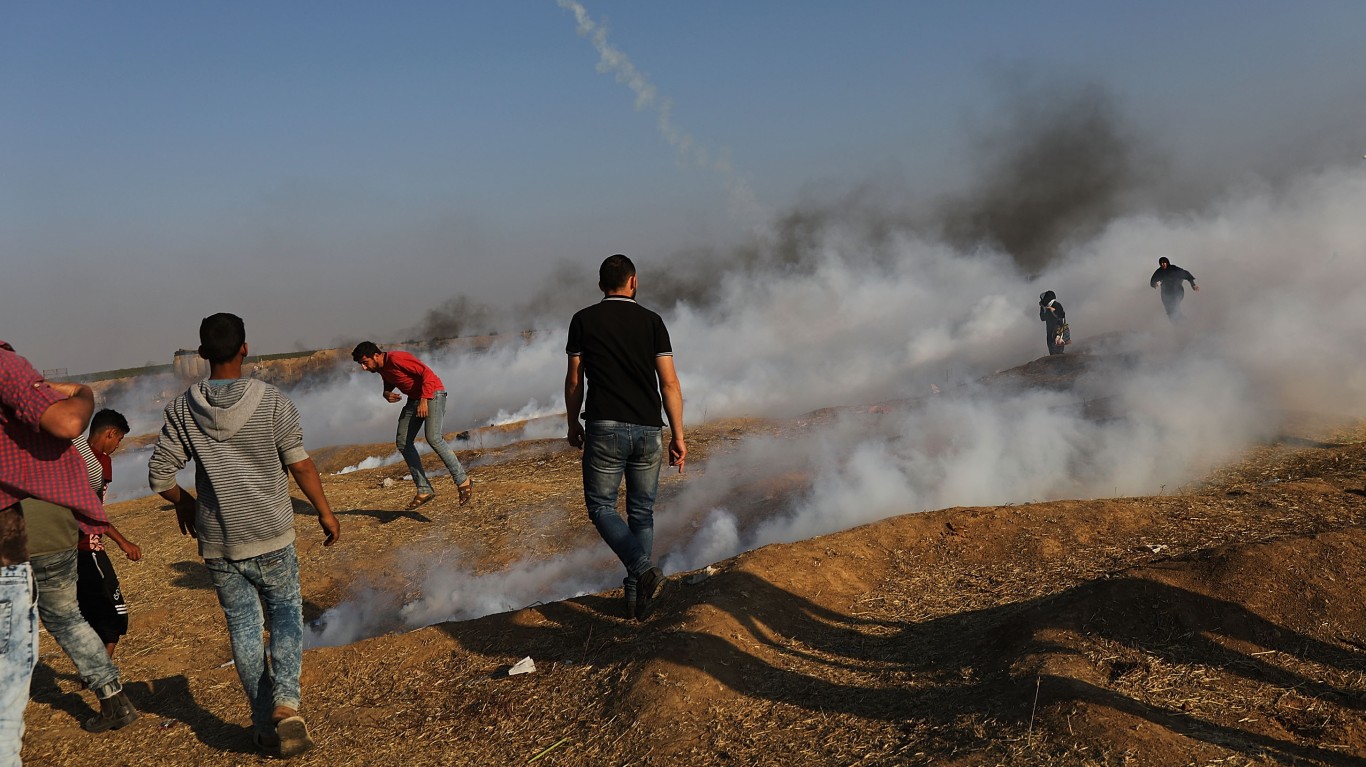
13. Israeli-Palestinian Conflict
> Type of conflict: Territorial Dispute
> Start date: May 14, 1948
> Forces currently involved: Israel, Palestine, Hamas
> Continent: Asia
The longest-running unresolved conflict predates the creation of Israel nearly 74 years ago with the end of the British Mandate, a move that escalated tensions that had been simmering since the late 19th century. Since then, violence has ebbed and flowed. Despite the 1974 U.N.’s two-state solution and the promising talks between Israel and the Palestinians beginning in the 1990s, the conflict remains unresolved.
This century, flare-ups in the form of terrorist attacks against civilians in Israel or rocket launches from Gaza towards Israeli settlements on one hand, and Israel keeping a military occupying presence in the West Bank and implementing a siege on the densely-populated Gaza strip and responding with air or drone strikes on the other have left many casualties on both sides.
[in-text-ad]
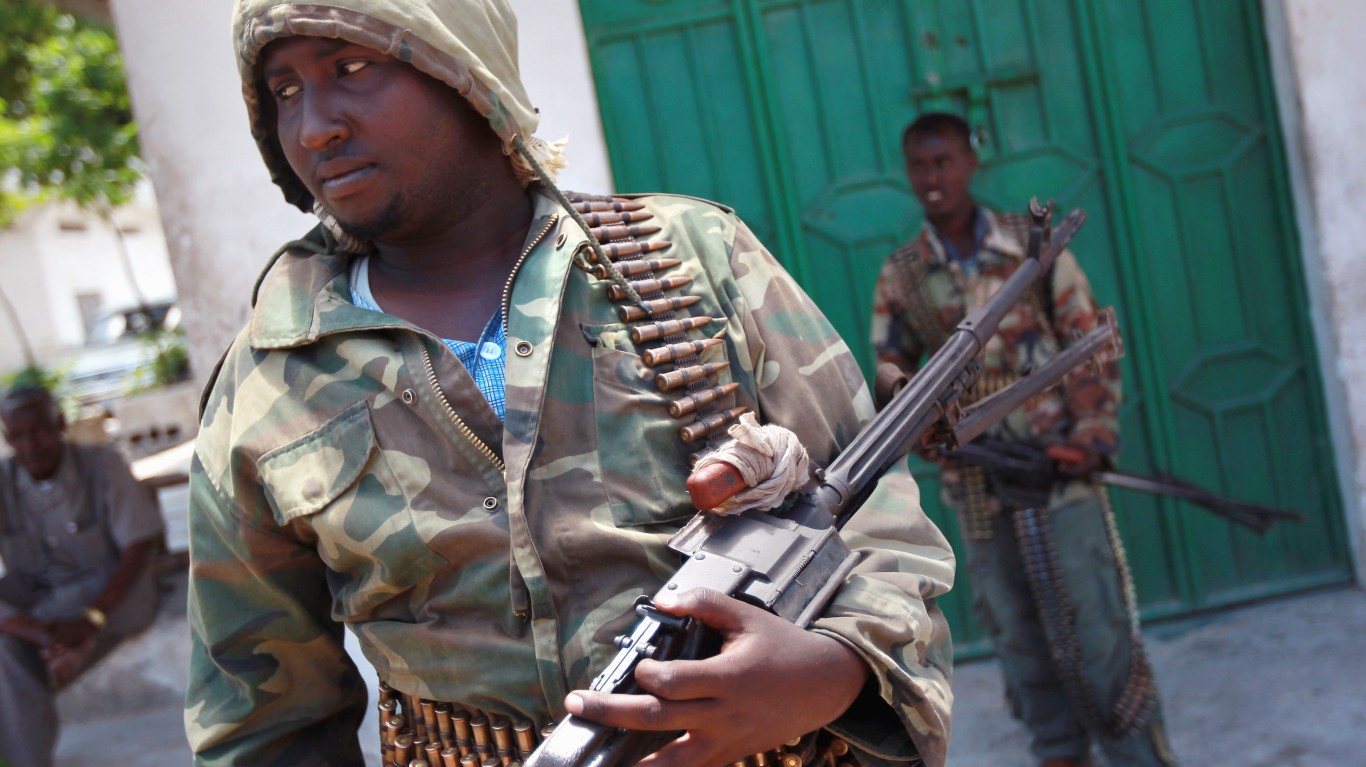
12. Somali Civil War
> Type of conflict: Civil War
> Start date: Jan 27, 1991
> Forces currently involved: Somali Democratic Republic, Ethiopia, Islamic Courts Union, Al-Qaeda, Al-Shabaab, Islamic State
> Continent: Africa
For more than three decades, Somalia has gone through periods of civil war and famine. In the early ’90s, in a period the Somalis call the “burbur” (catastrophe), a drought exacerbated simmering inter-clan conflict that killed 25,000 people and displaced millions others, followed by a period with virtually no central government.
More than 30 years after the burbur, al-Sahbab, a home-grown Islamist armed group, conducts periodic attacks on civilians and government forces and their allied troops from the regional African Union Mission in Somalia.
11. Allied Democratic Forces Insurgency
> Type of conflict: Terrorist insurgency
> Start date: Nov 13, 1996
> Forces currently involved: Allied Democratic Forces, Uganda, Democratic Republic of Congo, Islamic State
> Continent: Africa
The ADF was formed in the Democratic Republic of Congo in 1995 with an alliance between two rebel groups that had fought in the Ugandan civil war of 1986-94 against the government of President Yoweri Museveni who has held office since 1986. Though the ADF is believed to have colluded with Islamic State group attacks in recent years, it has also reportedly recruited insurgents along secular ethnic lines as part of its fight regarding political and economic issues that encompass Uganda and eastern DRC.
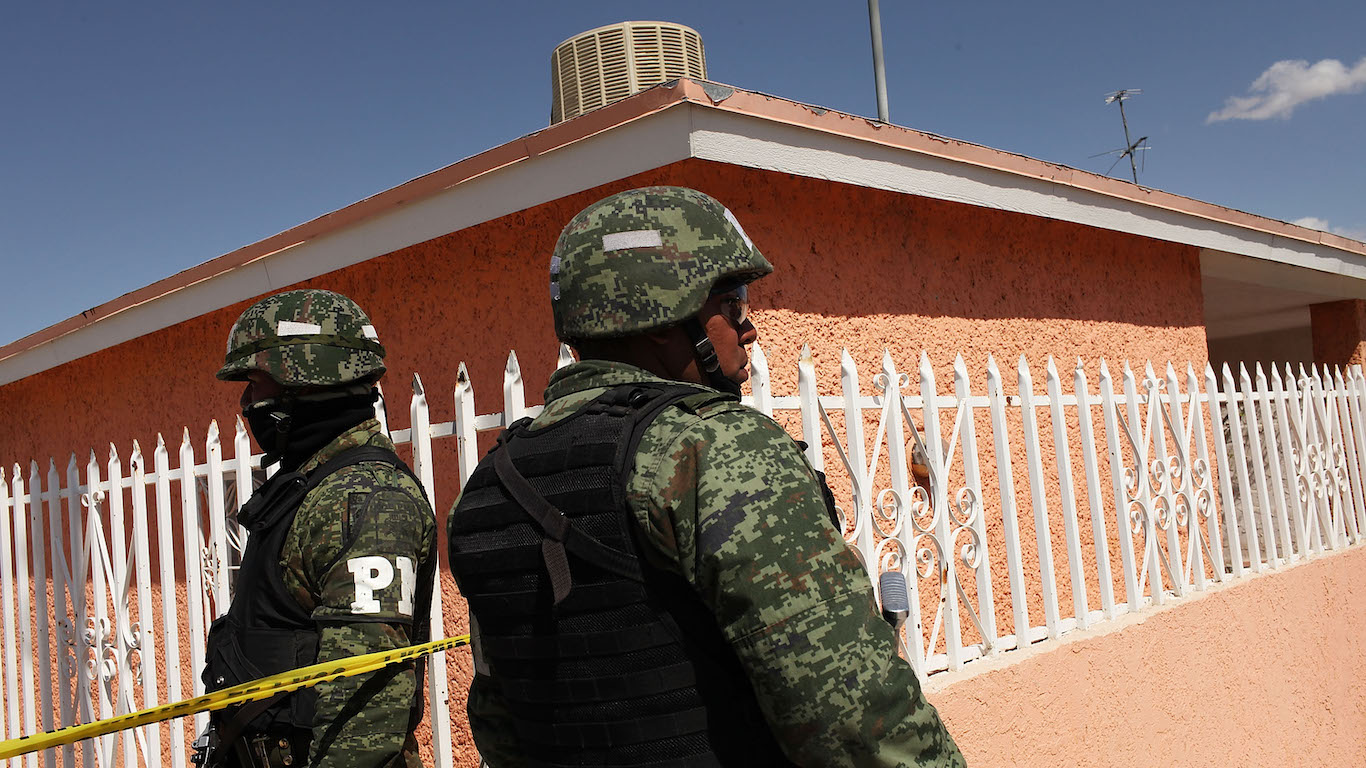
10. Mexican drug war
> Type of conflict: Drug war
> Start date: Dec 11, 2006
> Forces currently involved: Mexico, Sinaloa Cartel, CJNG, Gulf Cartel, and numerous other cartels
> Continent: North America
More than 60,000 people have disappeared in Mexico since the beginning of the country’s most recent war on drugs that began in 2006. About 360,000 homicides have been recorded since then in this country of 127 million. Though Mexico has been grappling for decades with drug cartel violence, the most recent 17-year crackdown has been the most violent. The Sinaloa Cartel, led formerly by Joaquín “El Chapo” Guzmán, who is serving a life sentence at a U.S. supermax prison in Colorado, is one of Mexico’s oldest and largest cartels, with presence in nearly half of Mexico’s 32 states.
[in-text-ad-2]
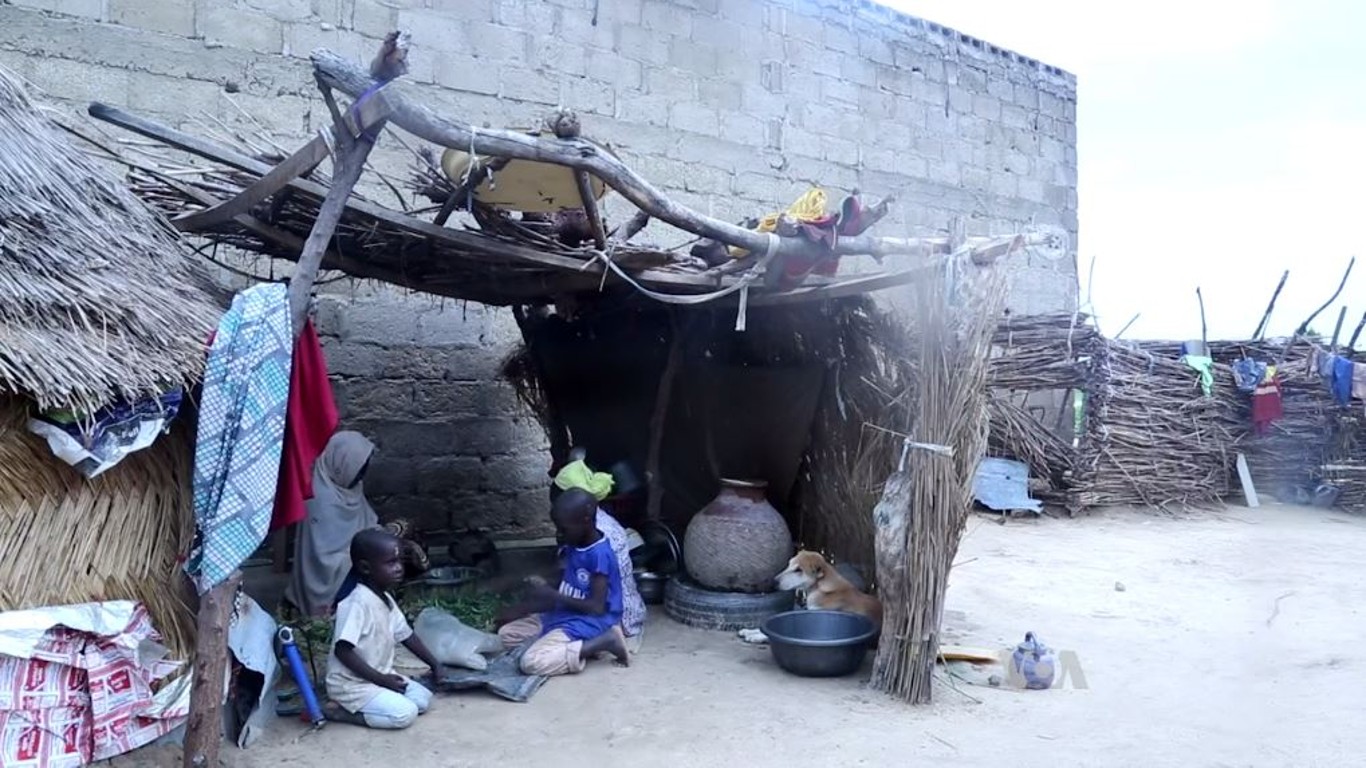
9. Boko Haram insurgency
> Type of conflict: Terrorist insurgency
> Start date: Jul 26, 2009
> Forces currently involved: Nigeria, Cameroon, Chad, Niger, Benin, Boko Haram, ISIL, Al-Qaeda, Taliban, Ansaru, Ghana
> Continent: Africa
The radical Islamic militant organization whose name translates roughly as “Western education [is] forbidden” has been highly active in northern Nigeria and neighboring countries for the past 13 years. Though Boko Haram dates back at least to the early 2000s, it became more violently radical after a government crackdown killed hundreds of its members in 2009, including the death in police custody of its leader Mohammed Yusuf.
In 2014, Boko Haram kidnapped more than 270 school girls, most of whom were Christian, in the northeastern town of Chibok. They were forced to convert to Islam and sold into marriage. As of 2021, only about 100 of the girls have escaped or have been rescued.
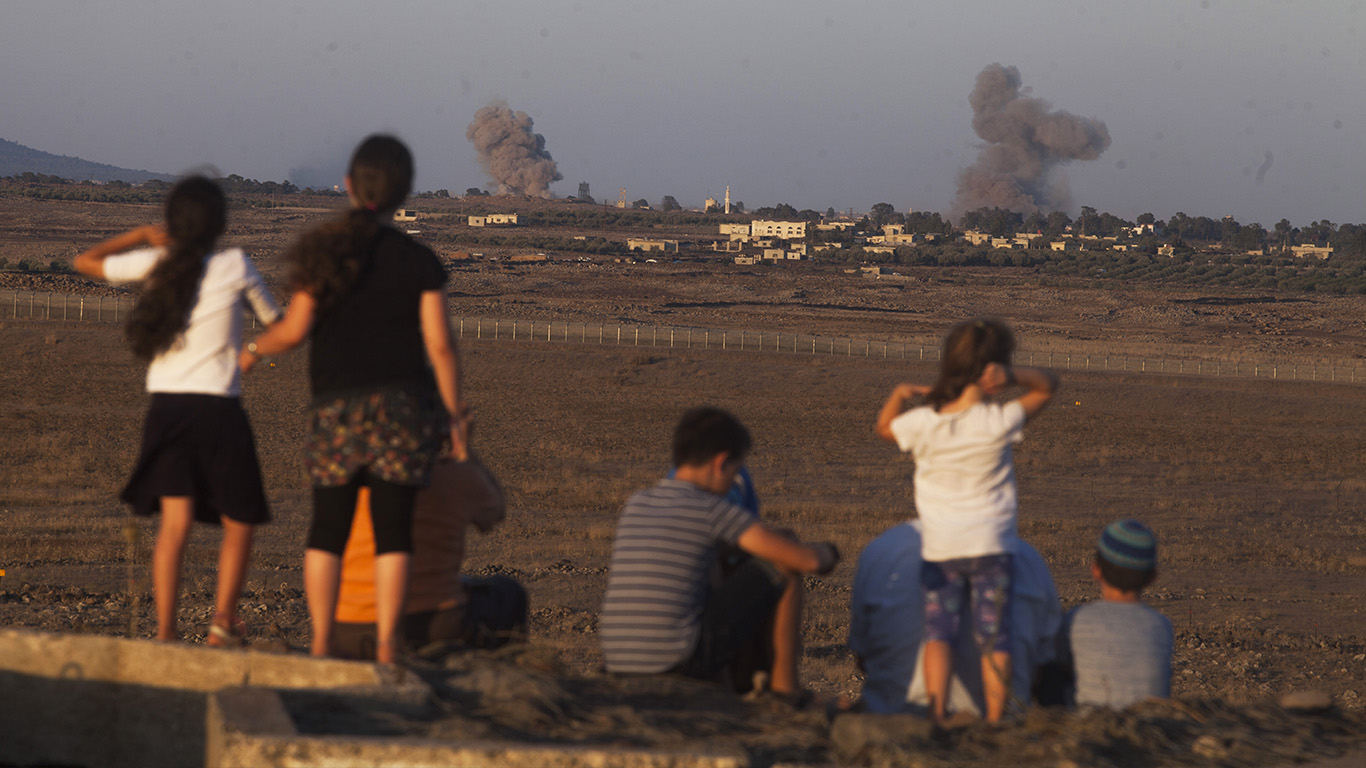
8. Syrian Civil War
> Type of conflict: Civil War
> Start date: Mar 15, 2011
> Forces currently involved: Syria, Iran, Russia, Hezbollah, Syrian Salvation Government, Al-Qaeda, Islamic State, Maghaweir al-Thowra
> Continent: Asia
What began as a largely secular civil uprising against Syrian President Bashar al-Assad in 2011 has descended into a chaotic combination of civil war with an Islamist militant insurgency. The presence of pro-Kurdish rebels in Syria has pulled Turkey into the conflict. Furthermore, Russia supports Assad.
The war has killed hundreds of thousands of Syrians and created 12 million outbound refugees and internally displaced people. In January, three kamikaze drones attacked a U.S. coalition base in Al Tanf, near the border with Jordan and Iraq, injuring two Syrian opposition fighters.
[in-text-ad]
7. Mali War
> Type of conflict: Terrorist insurgency
> Start date: Jan 16, 2012
> Forces currently involved: Mali, Al-Qaeda, Islamic State, Boko Haram
> Continent: Africa
Armed conflict in Mali surged in 2012 after the National Movement for the Liberation of Azawad, a separatist group composed of ethnic Tuareg people, initiated a rebellion in the north, the same year President Amadou Toumani Toure was deposed in a military coup.
The MNLA was initially partnered with Islamist militants, including al-Qaeda of the Islamic Maghreb, but the alliance quickly crumbled after the Islamists imposed their harsh interpretations of Islamic law and destroyed shrines in Timbuktu and Gao. In January, Mali’s military junta that is battling the rebels demanded that French troops who have been helping the government fight the Islamicists leave the country within a month.
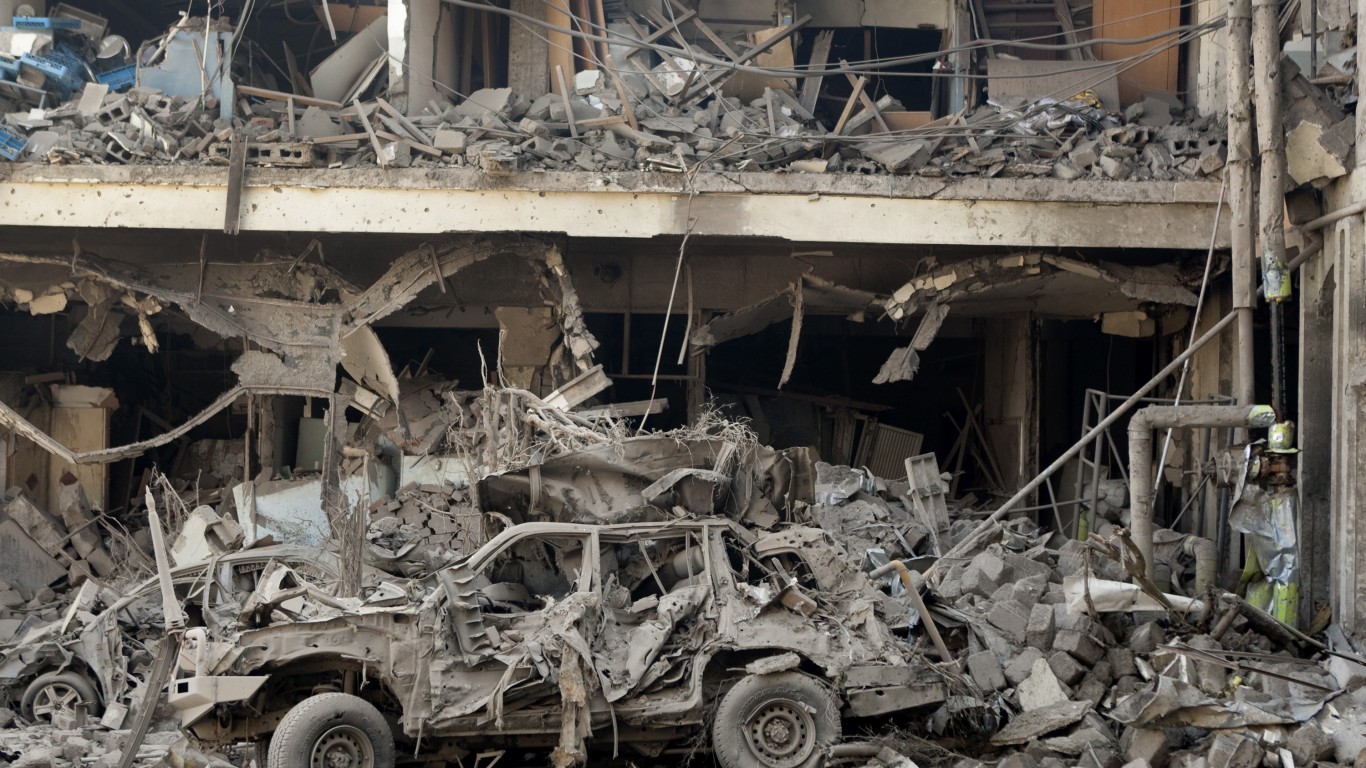
6. Instability in Pakistan
> Type of conflict: Terrorist insurgency
> Start date: Jun 15, 2014
> Forces currently involved: Pakistan, Tehrik-e Taliban Pakistan
> Continent: Asia
The year 2014 was a particularly volatile one in a country known for its instability. It included a rash of sectarian attacks, military operations in the southwestern province of North Waziristan, raging political protests in Islamabad, and floods in Singh and Punjab provinces.
The country of 231 million continues to be ravaged by an economic crisis, exacerbated by the cleanup of the massive flooding last year, and political instability following the ouster of Prime Minister Imran Khan in a parliamentary no-confidence vote. The country entered 2023 with an ongoing struggle against violent attacks on religious minorities, an overwhelmed electrical grid, and Taliban terrorists emboldened by the group’s recent takeover of the Afghanistan government.
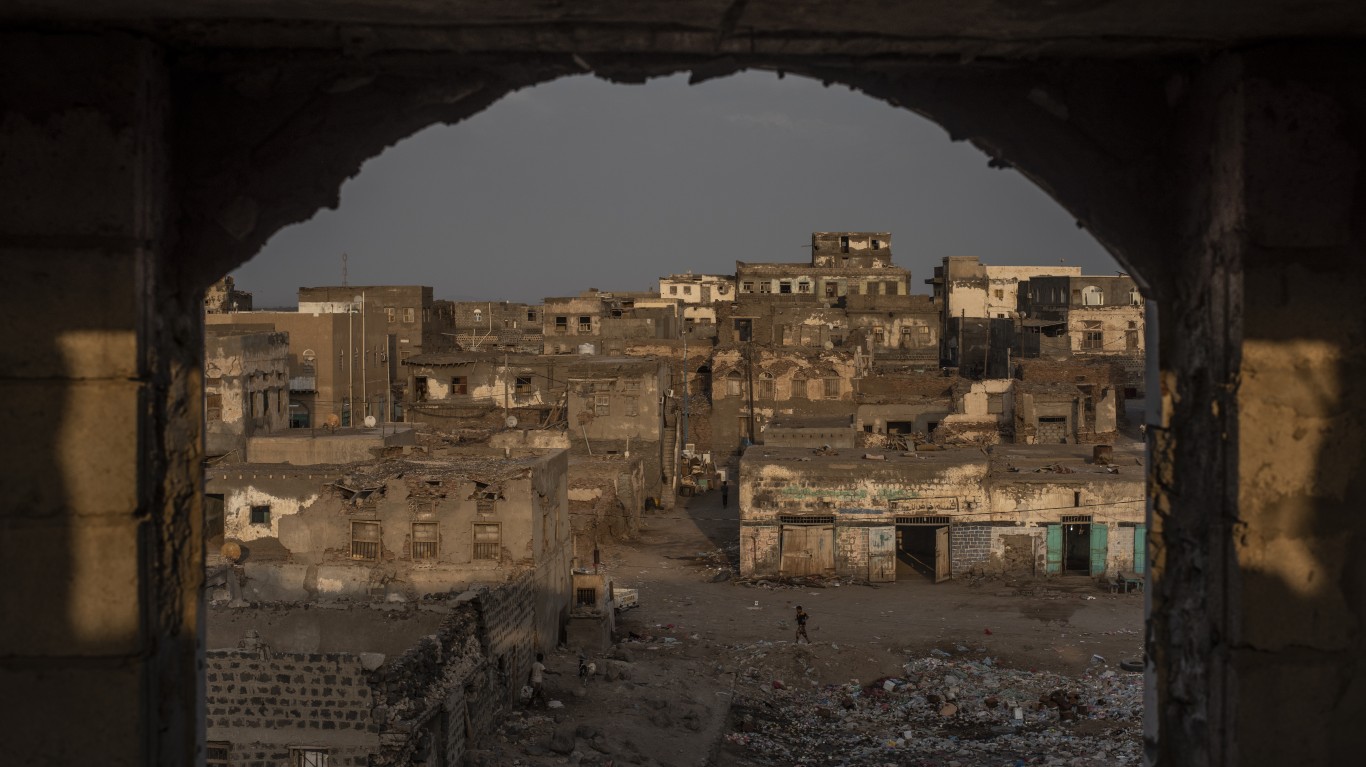
5. Yemeni Civil War
> Type of conflict: Civil War
> Start date: Sep 16, 2014
> Forces currently involved: Government of Yemen, Houthis-led Supreme Political Council, Pro-Hadi/Alimi Security forces, Yemen National Army, Al-Qaeda, Islamic State, and non-aligned tribal forces
> Continent: Asia
For the past eight years, one of the poorest and least developed countries in the world has been the stage for a proxy war between a Saudi Arabian-led military coalition and Iranian-backed Houthi rebels. The Saudis support the internationally recognized government of Rashad al-Alimi, who became the country’s president in 2022, a role claimed by Mahdi al-Mashat, the head of the Houthis Supreme Political Council. The war has displaced millions of people, and led to outbreaks of infectious diseases, a shortage of health services, and famine.
[in-text-ad-2]
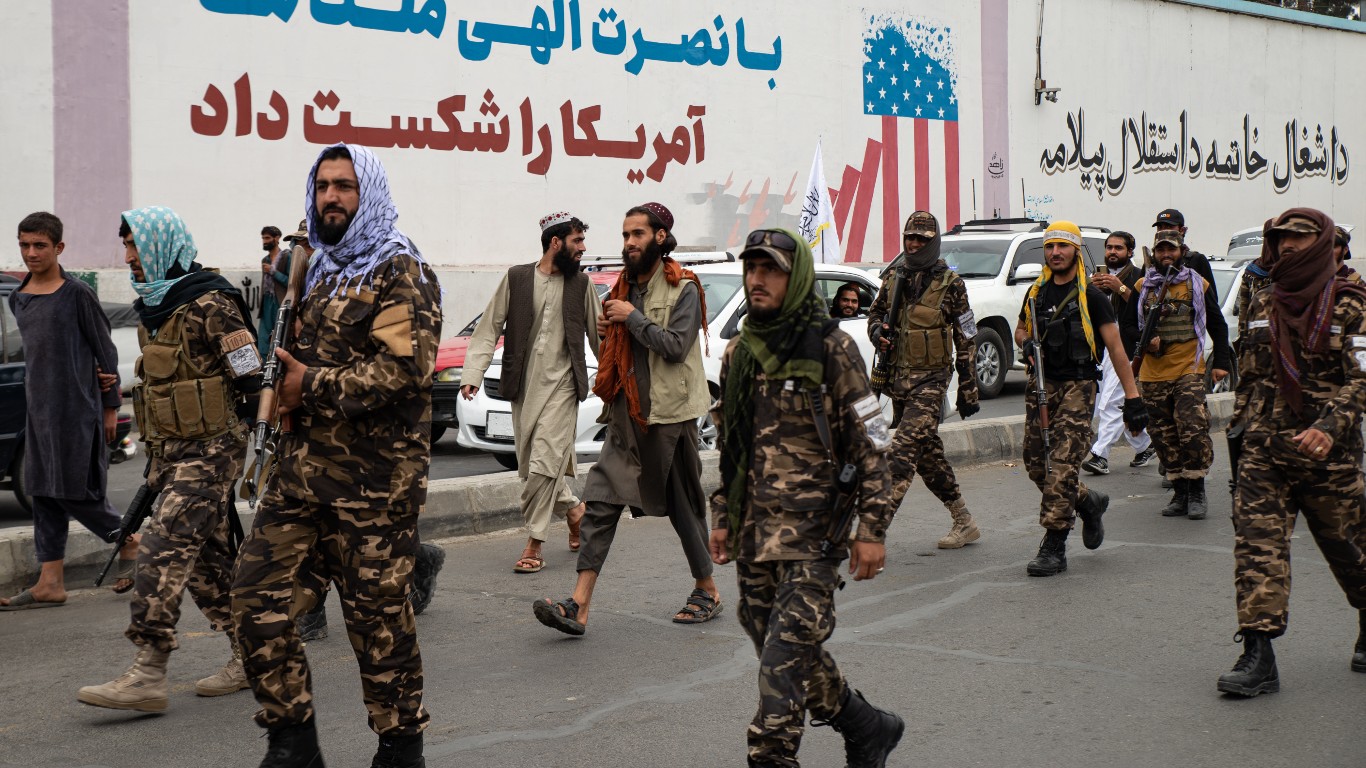
4. Afghanistan Conflict
> Type of conflict: Terrorist insurgency
> Start date: Feb 2, 2015
> Forces currently involved: Afghanistan, Taliban, Al-Qaeda, Islamic State
> Continent: Asia
In accordance with the Doha Agreement of 2020 between the U.S. and the Taliban, the U.S. ended its war in Afghanistan officially in August 2021 with the complete withdrawal of its troops that had been fighting there for two decades. Weeks before the pullout, the Taliban swept into the capital city of Kabul, forcing Afghan President Ashrafi Ghani to flee to exile in the United Arab Emirates.
Though the U.S. war in Afghanistan ended, the Taliban’s consolidation of power and the presence of Islamic State in Khorasan have led to a humanitarian crisis.Insurgents attacks targeting civilians and ongoing internal instability continues to wreak the country.
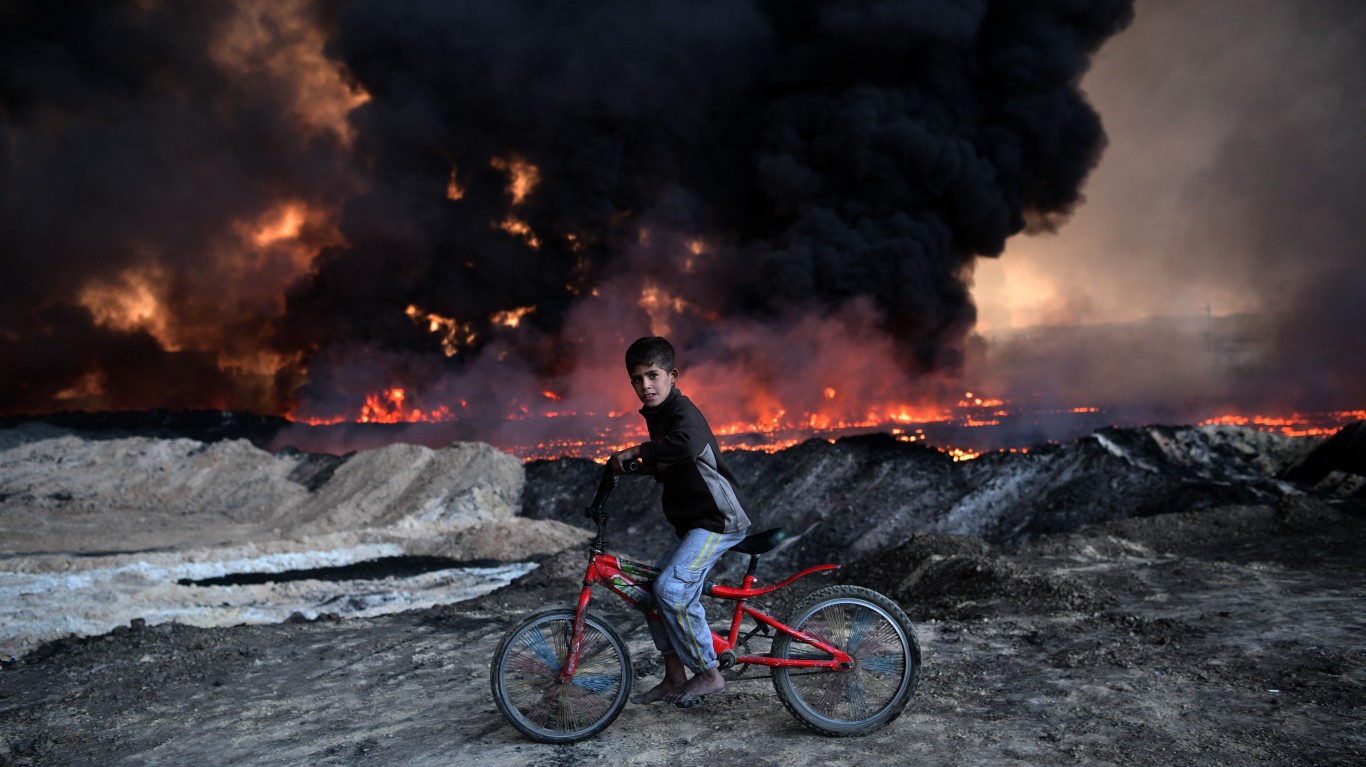
3. Iraq Conflict
> Type of conflict: Terrorist insurgency
> Start date: Dec 9, 2017
> Forces currently involved: Iraq, Islamic State
> Continent: Asia
In December 2017, the U.S. announced an end to its combat mission in Iraq, a country severely upended since the U.S. invaded it in 2003 based on the Bush administration false claims of Iraq President’s Saddam Hussein’s involvement in the Sept. 11, 2001, terrorist attacks.
Since the withdrawal of U.S. troops, the situation in Iraq remains tenuous despite the Iraq government’s claim of victory over Islamic State militants more than five years ago. As in neighboring Syria, Iraq is grappling with ongoing terrorist attacks, most recently in January, in an attack on an Iraq police station in the country’s northeast.
[in-text-ad]
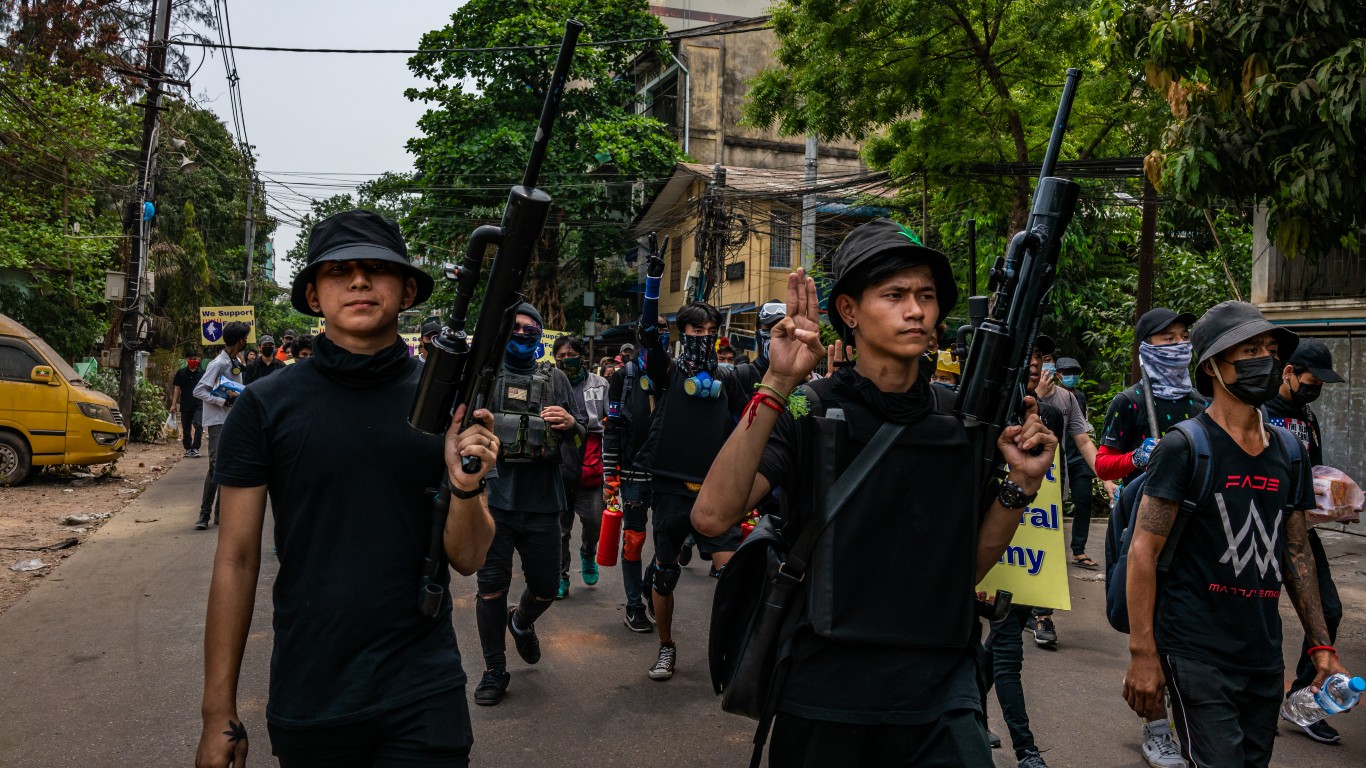
2. Myanmar Civil War
> Type of conflict: Civil War
> Start date: May 5, 2021
> Forces currently involved: National Unity Government & State Administration Council
> Continent: Asia
The Myanmar civil war is Asia’s newest major conflict, which erupted shortly after the military seized power and began killing anti-government protesters. The coup inspired civilians to take up arms and form organized rebel groups. Since then, the intensity of attacks and the number of people killed has increased nationwide, with most of the worst fighting occurring in the north of this country of 54 million. In January, pro-democracy fighters targeted military personnel conducting a census because they said it was a set-up for an illegitimate election scheduled to take place later this year.
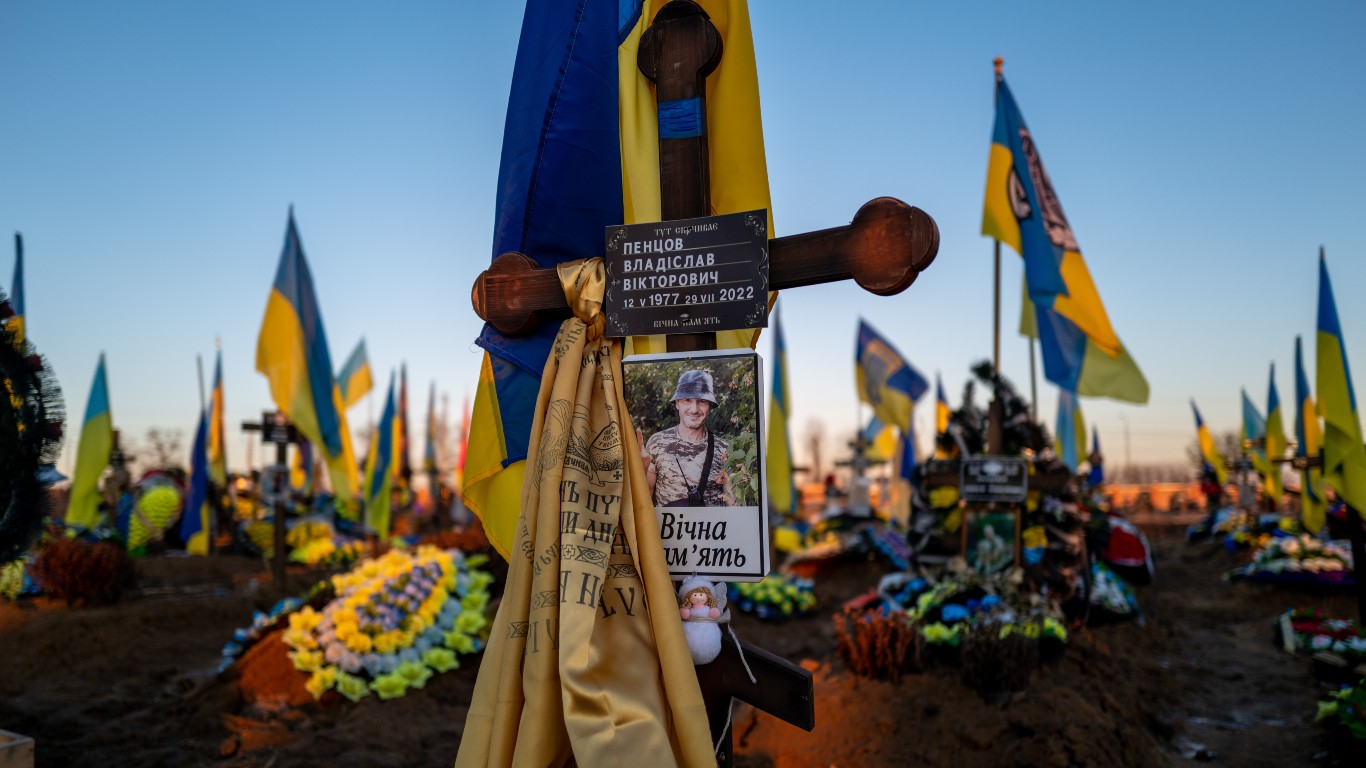
1. Russia-Ukraine War
> Type of conflict: Territorial Dispute
> Start date: Feb 24, 2022
> Forces currently involved: Russia, Ukraine
> Continent: Europe
Since the start of Russia’s all-out invasion of Ukraine, tens of thousands of civilians have been killed and millions have fled their homes. Eleven months into the war, escalation appears to be imminent as Russia is reportedly setting up for a late-winter or spring offensive, while Germany and the U.S. are among nations preparing to send tanks to the Ukrainian army.
In December, Ukraine used drones to attack military bases deep inside Russian territory, and a month later struck a building in Donetsk, killing at least 89 Russian troops. Meanwhile, Russia has escalated attacks on Ukraine infrastructure, leaving millions without utilities, including heat, in the winter.
It’s Your Money, Your Future—Own It (sponsor)
Are you ahead, or behind on retirement? For families with more than $500,000 saved for retirement, finding a financial advisor who puts your interest first can be the difference, and today it’s easier than ever. SmartAsset’s free tool matches you with up to three fiduciary financial advisors who serve your area in minutes. Each advisor has been carefully vetted and must act in your best interests. Start your search now.
If you’ve saved and built a substantial nest egg for you and your family, don’t delay; get started right here and help your retirement dreams become a retirement reality.
Thank you for reading! Have some feedback for us?
Contact the 24/7 Wall St. editorial team.
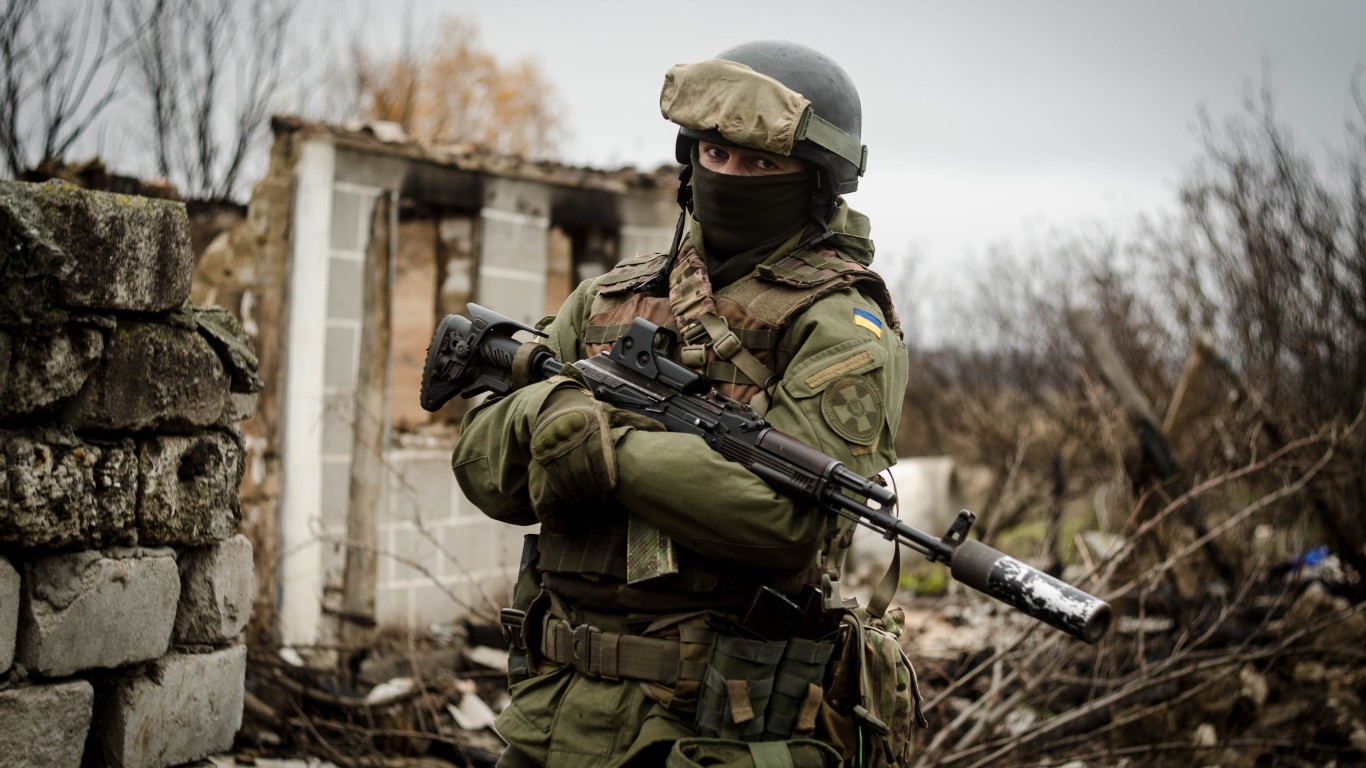 24/7 Wall St.
24/7 Wall St.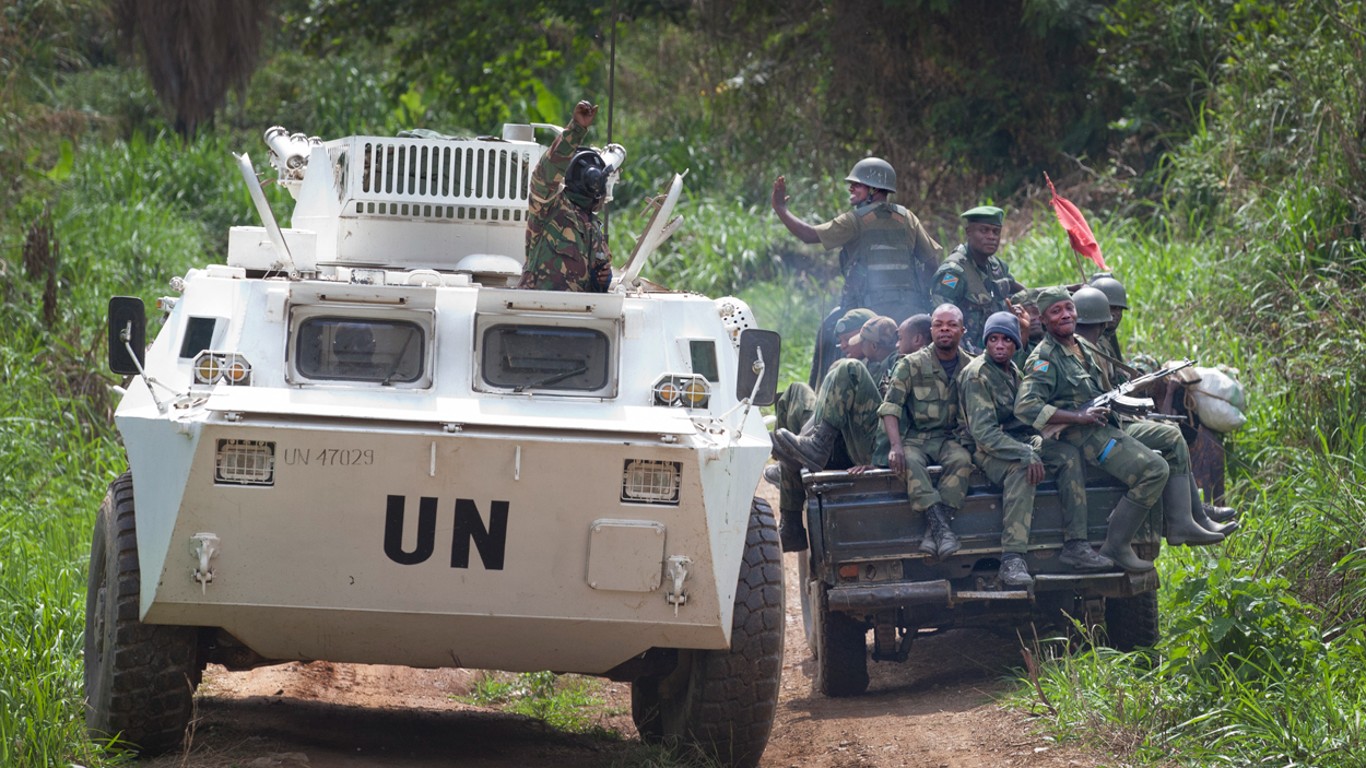
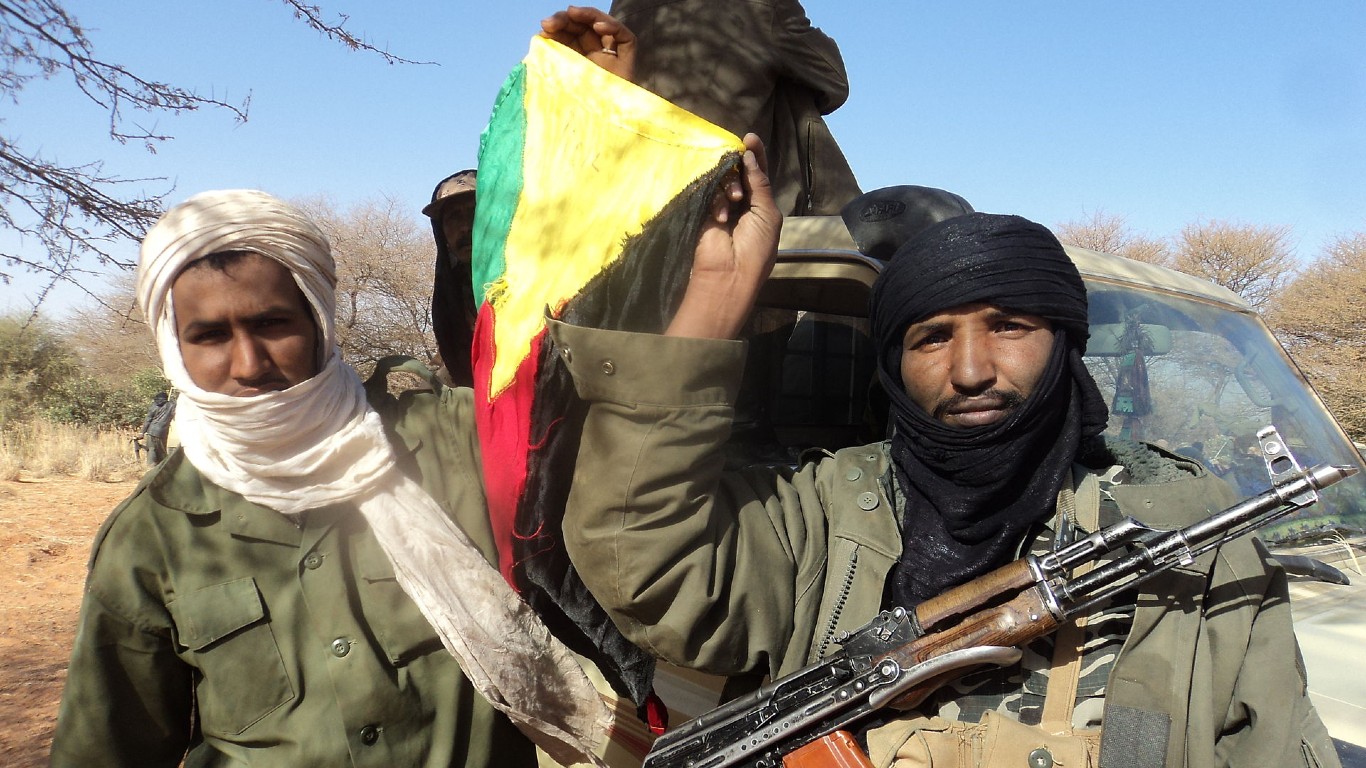
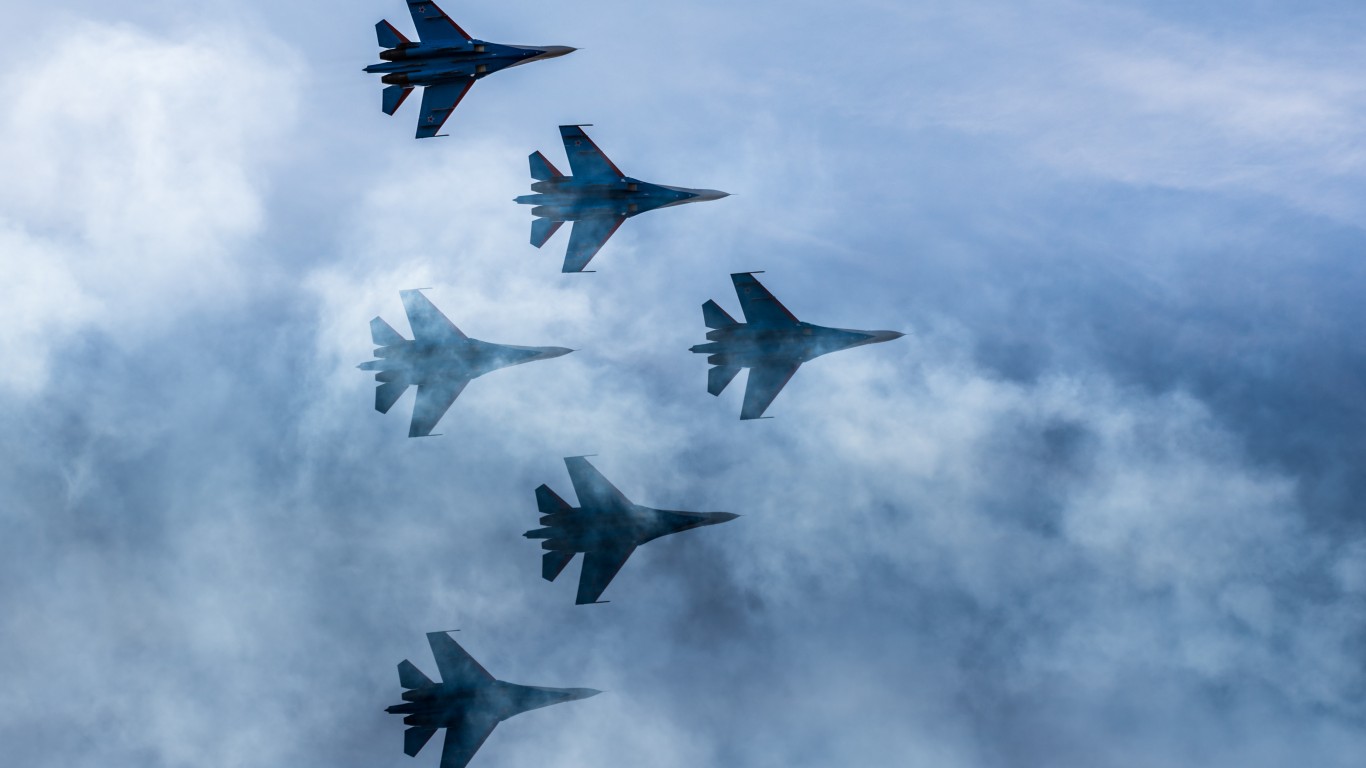 24/7 Wall St.
24/7 Wall St.